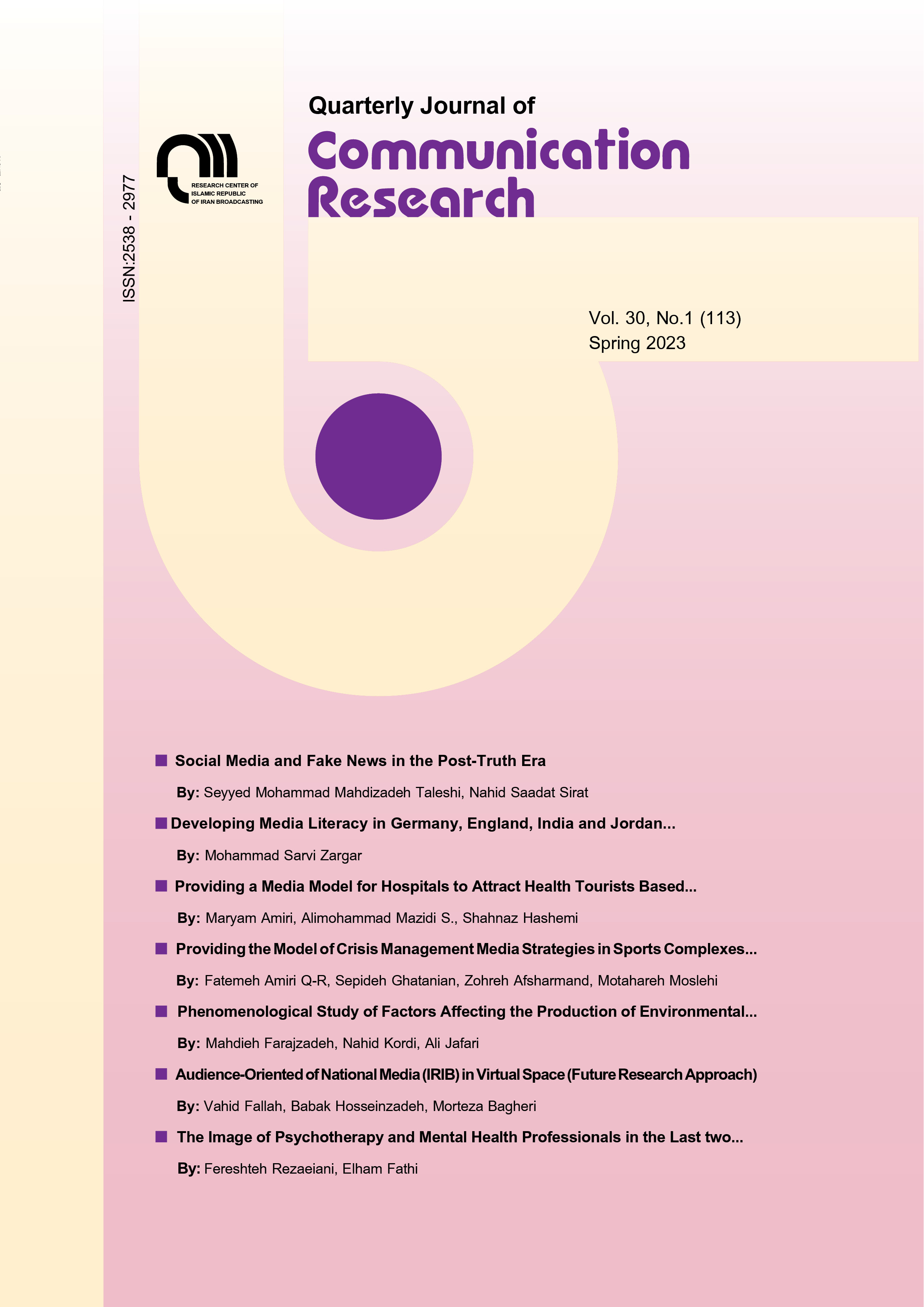Document Type : Original Article
Author
Social Sciences, Faculity of Social Science, University of Duisburg - Essen, Germany
Abstract
This historical account analyses the experience of media literacy policy-making in four countries. Germany and England have been selected as leading countries in the promotion of media literacy policies, while India and Jordan have been selected as countries similar to Iran. The results of this historical-comparative study show that policies of media literacy promotion in the two pioneering countries have reached the stage of universal media literacy education. Also, an audience in the media literacy promotion policies of the leading countries is considered not as passive but as active agents, and thereafter, the audience has seen as an efficient and responsible citizen. On the other hand, in the two abovementioned developing countries similar to Iran, policies of media literacy promotion have still remained in the paradigm of «cultural engineering» and «top-down» policy-making models. In the final part of this article, the concept of «cultural knowledge» is mentioned’; a certain form of collective knowledge, possible to obtained through improving media literacy of the Iranian citizens and continuous improvement of their socio-political awareness; The knowledge that its formation and accumulation requires moving beyond the protectionist media paradigm that dominates Iran’s media landscape for decades.
Keywords
Main Subjects

